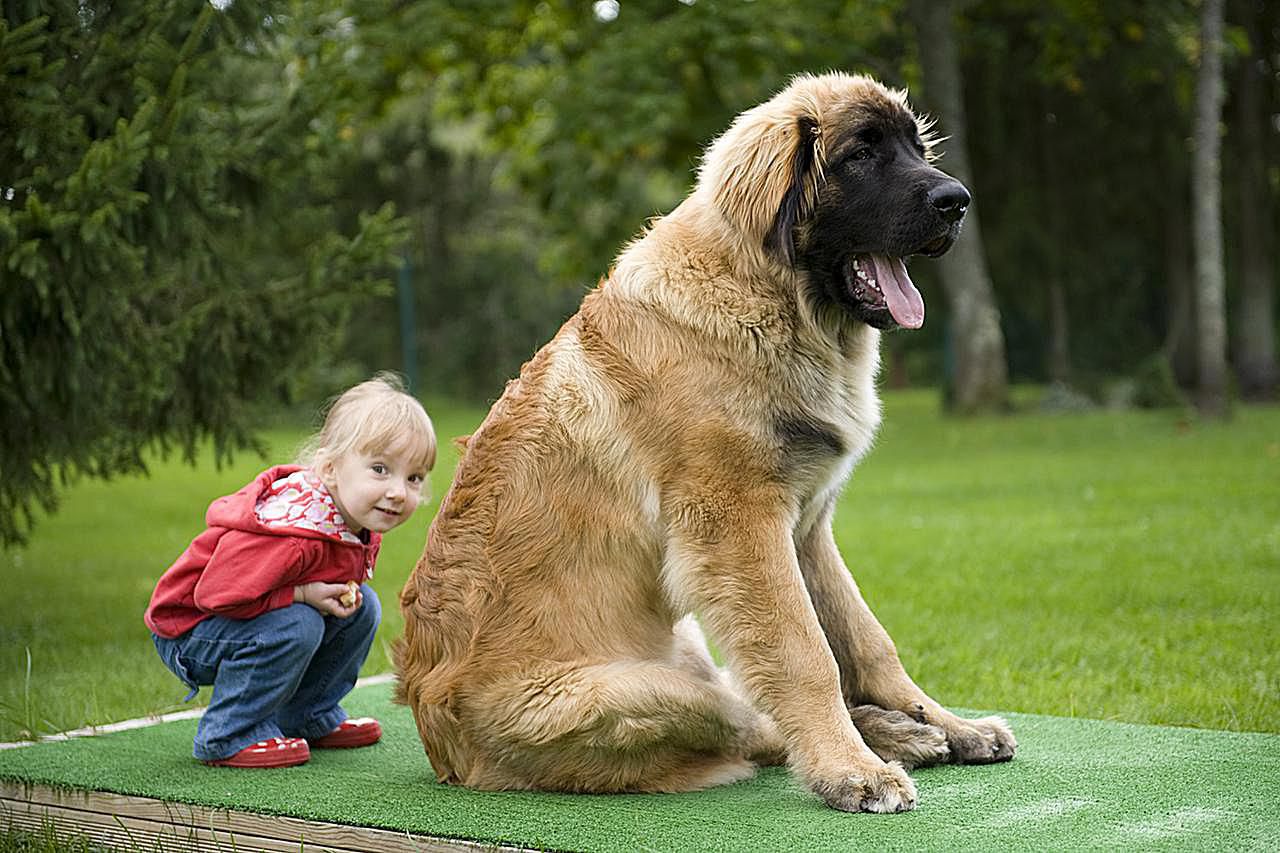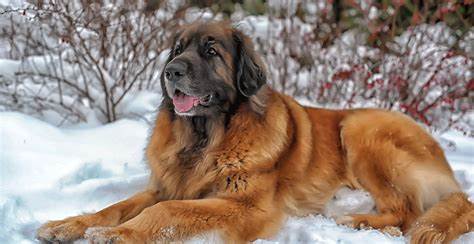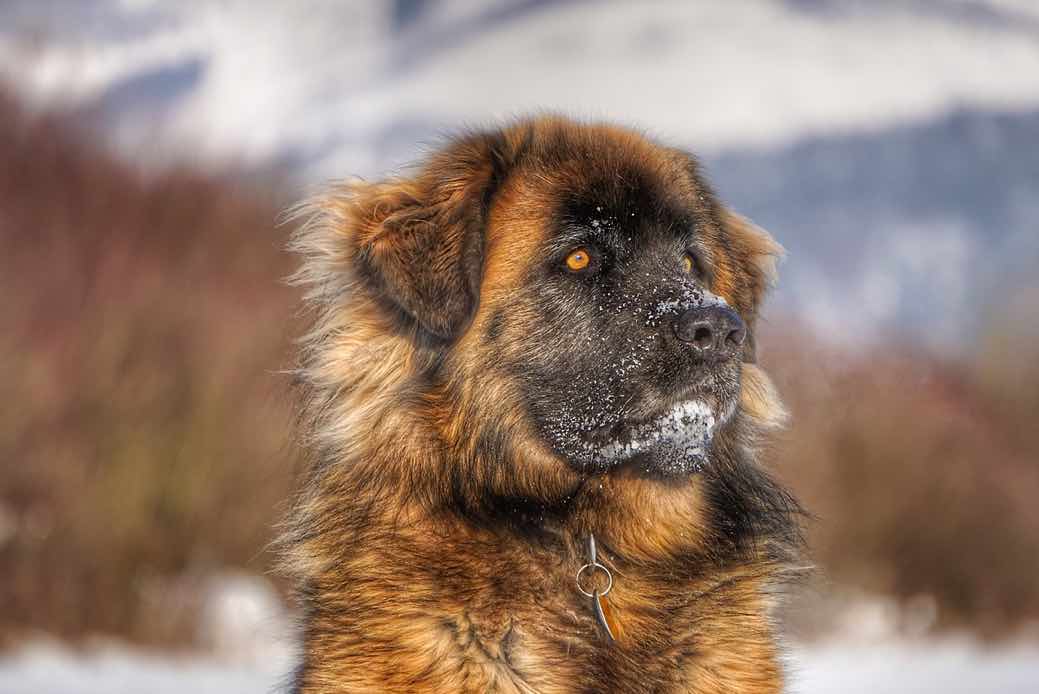
The Leonberger is a majestic and noble breed developed in the mid-19th century in Leonberg, Germany. The breed’s creator, Heinrich Essig, aimed to create a dog that resembled the lion on the town crest. To achieve this, he reportedly crossed Saint Bernards, Newfoundlands, and Great Pyrenees, eventually producing the massive, lion-like dog now known as the Leonberger.
Originally bred as a symbol of status for European nobility, Leonbergers were often found in royal courts and were used as both companions and working dogs. Their strength and versatility made them valuable for pulling carts and guarding estates. Though their numbers dwindled during the world wars, dedicated breeders revived the line, and the Leonberger was recognized by the American Kennel Club in 2010.
The Leonberger is admired for its balanced temperament, dignified presence, and stunning appearance. Though still considered rare in many parts of the world, it has a dedicated following in North America, Europe, and the UK.
Families looking for a loyal and affectionate giant breed find the Leonberger to be an excellent companion—calm, gentle, and protective without being aggressive.
The Leonberger is a true giant breed, instantly recognizable by its lush mane, solid build, and expressive, soulful eyes.
Coat:
• Long, water-resistant double coat with a thick mane around the neck and chest, especially pronounced in males.
Color:
• Ranges from lion-yellow to red and reddish-brown.
• Black mask on the face is essential for breed standard.
• Some black tipping on coat; minimal white allowed on chest and feet.
Size:
• Height: 25.5–31.5 inches (65–80 cm)
• Weight: 90–170 lbs (41–77 kg)
Head & Expression:
• Noble, rectangular head with a broad skull and medium stop.
• Dark brown, kind eyes with a gentle, intelligent expression.
Ears:
• Medium-sized, pendant-shaped, and well-set.
Tail:
• Long and well-furred, carried low when relaxed.
Body:
• Muscular and balanced, with an elongated yet athletic frame.
Despite its imposing size, the Leonberger is known for its sweetness, stability, and gentle nature.
Family-Oriented:
• Excellent with children and deeply bonded to its family—often referred to as a “nanny dog.”
Patient and Calm:
• Remarkably tolerant and slow to anger, ideal for households with other pets.
Intelligent and Trainable:
• Learns quickly but requires a consistent, positive approach.
• Enjoys training, especially when it reinforces its bond with the owner.
Watchful but Friendly:
• Natural guardian instincts but not aggressive—aloof but never hostile with strangers.
Playful and Sociable:
• Loves water and outdoor play—often retains a goofy puppy side even into adulthood.

The Leonberger offers the full package for those wanting a big, affectionate companion who’s both stately and silly.
A Gentle Giant:
• One of the most even-tempered and people-oriented giant breeds.
Stunning Presence:
• Lion-like appearance and soft eyes draw attention and admiration.
Devoted but Easygoing:
• Protective without being reactive—an ideal family watchdog.
Multifunctional:
• Excels in cart pulling, water rescue, therapy work, and canine sports.
Adaptable Indoors:
• Quiet and calm indoors despite its size—requires space, but not hyperactivity.
Training:
• Needs early socialization and consistent, gentle training.
• Responds best to reward-based methods and patient leadership.
Exercise:
• Moderate needs—long walks, play, and swimming are ideal.
• Should not be overexerted when young due to joint development.
Grooming:
• Brush several times a week, especially during seasonal shedding.
• Regularly clean ears and check for mats behind ears and around the neck.
Nutrition:
• Feed a high-quality, large-breed diet.
• Monitor for overfeeding—weight management is critical for joint health.
Companionship:
• Needs closeness and attention—does poorly if left alone for long periods.

Leonbergers are generally robust but, like most giant breeds, can be prone to several health issues. Their average lifespan is around 8–10 years.
Common concerns include:
• Hip and elbow dysplasia
• Bloat (gastric torsion)
• Heart issues such as dilated cardiomyopathy
• Laryngeal paralysis
• Polyneuropathy
Responsible breeders screen for these conditions and prioritize longevity and sound structure.
While similar in size to the Newfoundland and Saint Bernard, the Leonberger is more agile and refined in movement. It lacks the heavy drool of the Saint Bernard and tends to be more sensitive and eager to please. Compared to a Great Pyrenees, the Leonberger is more people-focused and has a friendlier, more trainable nature.
If you’re drawn to gentle giants with majestic coats and hearts of gold, the Leonberger could be the ideal choice. They require space, time, and care—but give back loyalty, affection, and calm companionship.
Not ideal for homes without time for training, grooming, or where large dogs aren’t practical.
United Pet Club can guide you in finding a responsible Leonberger breeder and help you prepare for life with this magnificent breed. With their soulful gaze and gentle heart, Leonbergers bring a special kind of magic into every home they enter.